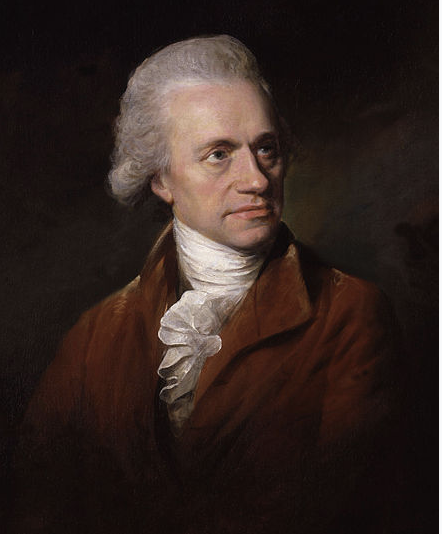
Frederick Wilhelm Herschel was born on November 15, 1738, in what is now Hanover, Germany. The Herschel family were poor but their father, Isaac, had a strong belief in education and introduced his children to philosophical and mathematical ideas. All but one of Isaac’s children received a solid elementary school education and displayed a special talent for music. Wilhelm, in particular, showed a remarkable musical talent at an early age, and by the time he was 15, had moved beyond his teacher’s capabilities. To raise money for a private tutor, he played the oboe for the Hanoverian Guard.
During the period between 1756 and 1763, the major nations of Europe were at war at home and in North Amercia. In 1758, Wilhelm and his brother Jacob escaped to London, arriving with no money and reduced to subsisting on small amounts earned from tutoring or performing music. In a short time, Wilhlem was fluent in English and began calling himself “William”–the Anglicized version of Wilhelm. In 1760, William Herschel became the head of the Durham Militia band in North Yorkshire, England. In the years that followed, he became proficient in the violin, harpsichord and organ as he composed 24 symphonies and a variety of concertos.
Around 1749, Herschel became interested in optics–a fascination that soon evolved into a deep study of the construction of the reflection telescope. This led to an extensive investigation of the planets and the stars, bringing him to detailed observations of the rings of Saturn and the Orion Nebula. Probing ever more deeply into the depths of the universe, he discovered hundreds of double stars–stars that orbit around each other, creating a successive of eclipses and providing the illusion of a single pulsating star.
Then, in March 1781, William Herschel discovered a disk that he imagined to be another double star system. It was later confirmed that this was not a double star system, but rather the planet that we now know as Uranus. William Herschel was one of the rare intellects who was able to contribute significantly to two relatively independent areas of intellectual endeavor. Many of us will remember him as the man who discovered Uranus, while others may celebrate his musical genius by listening to his Symphony No.17, in C major. Reflecting on his astronomical observations, Herschel once mused:
Since stars appear to be suns, and suns, according to the common opinion, are bodies that serve to enlighten, warm, and sustain a system of planets, we may have an idea of the numberless globes that serve for the habitation of living creatures.
